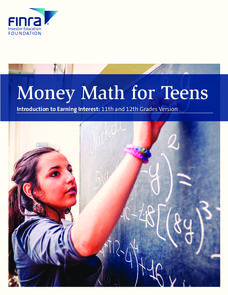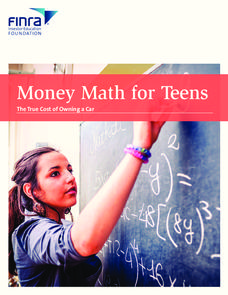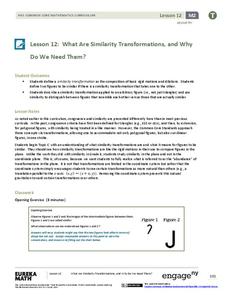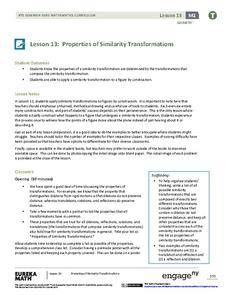Curated OER
We're In The Money
Learn about the history of money, as well as counterfeiting, budget vocabulary, and money management. Much of the lesson requires a Nova video; however, it also includes numerous worksheets that may be useful even without the video....
Curated OER
Exploring the Hudson in 1609
While this lesson focuses on a study of the Hudson River, it could be used as a template for a discussion of map skills, converting measurements, and plotting a route. The lesson includes vocabulary and other resources to make it a...
Curated OER
Hatching Egg Lesson
What a great way to introduce life cycles in your classroom! Kindergartners learn about chickens using visual aids, vocabulary lists, and more. If possible, you can have your class watch the process up close and personal by bringing in...
Curated OER
Origami Ducks: Geometry, Listening, and Following Directions
Make origami ducks with your class to reinforce geometry concepts and vocabulary; develop fine motor and visual translation skills; and enrich study of Japanese culture, the pond habitat, or migration. Create a whole group "worksheet"...
Curated OER
The Formation of Fossil Fuels
Middle schoolers participate in an activity in which they explain the difference between renewable and nonrenewable sources of energy. They discover why the supply of fossil fuels is limited and practice using new vocabulary.
Curated OER
Wavelengths of Light
Explore physical science by participating in a visual spectrum experiments. Budding scientists identify the colors in the color spectrum and view the colors in class by utilizing cellophane, flash lights, and other arts and crafts...
SaveandInvest.org
Introduction to Earning Interest: Grades 9-10
Does your bank pay you for allowing them to hold your money? The lesson covers three different ways your money can make money. Topics include certificates of deposit, statement savings accounts, and money market accounts.
SaveandInvest.org
Introduction to Earning Interest: Grades 11-12
Does your bank pay you for allowing them to hold your money? Class members investigate three different ways money can make more money. Topics include certificates of deposit, statement savings accounts, and money market accounts....
EngageNY
Points of Concurrencies
You say that perpendicular bisectors intersect at a point? I concur! Learners investigate points of concurrencies, specifically, circumcenters and incenters, by constructing perpendicular and angle bisectors of various triangles.
EngageNY
Secant and the Co-Functions
Turn your class upside down as they explore the reciprocal functions. Scholars use the unit circle to develop the definition of the secant and cosecant functions. They analyze the domain, range, and end behavior of each function.
PBS
Add, Subtract and Multiply Fractions
Your future chefs will appreciate this comprehensive lesson where learners practice operations on fractions using pizza and soup analogies. Learners begin with a pizza analogy that requires the learners to multiply a whole...
EngageNY
End-of-Module Assessment Task - Geometry (module 1)
Have you hit a wall when trying to create performance task questions? Several open-ended response questions require a deep level of thinking. Topics include triangle congruence, quadrilaterals, special segments, constructions, and...
SaveandInvest.org
The True Cost of Owning a Car
Almost every teen wants a car, but can they really afford one? The instructional activity walks pupils through how to identify a budget, find all of the costs associated with car ownership, and determine if they should buy the car or...
EngageNY
Translations
Learn through constructions! Learners examine a translation using constructions and define the translation using a vector. Pupils then construct parallel lines to determine the location of a translated image and use the vector as a guide.
EngageNY
Motion Along a Line – Search Robots Again
We can mathematically model the path of a robot. Learners use parametric equations to find the location of a robot at a given time. They compare the paths of multiple robots looking for parallel and perpendicular relationships and...
Texas Education Agency (TEA)
Investigating STEM Cluster Careers
Science, technology, engineering, math—there are so many option in STEM! Using the resource, pupils identify and explore STEM career opportunities. They complete a vocabulary activity mat, crossword puzzle, and matching activity to learn...
West Contra Costa Unified School District
Key Features of Graphs
The key is ... After a day of instruction on key features of graphs, groups create a poster and presentation on the key features of their given function graph. The resource provides an extension activity of "telephone" using...
02 x 02 Worksheets
Absolute Value Equations and Inequalities
Demonstrate the meaning of an absolute inequality using three different methods. Here, scholars explore absolute value inequalities through graphing, number line distance, and compound inequalities. Pupils complete various activities to...
Kenan Fellows
Applying Linear Regression to Marathon Data
It's not a sprint, it's a marathon! Statistic concepts take time to develop and understand. A guided activity provides an opportunity for individuals to practice their linear regression techniques in spreadsheet software. The activity...
EngageNY
Rotations, Reflections, and Symmetry
Lead your high school class on a journey through the world of symmetry and reflections as you discuss geometric principles. Pupils differentiate between reflections and rotations, explore rotational symmetry, and investigate how to...
EngageNY
Making Scale Drawings Using the Ratio Method
Is that drawn to scale? Capture the artistry of geometry using the ratio method to create dilations. Mathematicians use a center and ratio to create a scaled drawing. They then use a ruler and protractor to verify measurements.
EngageNY
Dilations from Different Centers
Can you follow a composition of transformations, or better yet construct them? Young mathematicians analyze the composition of dilations, examining both the scale factor and centers of dilations. They discover relationships for both...
EngageNY
What Are Similarity Transformations, and Why Do We Need Them?
It's time for your young artists to shine! Learners examine images to determine possible similarity transformations. They then provide a sequence of transformations that map one image to the next, or give an explanation why it is...
EngageNY
Properties of Similarity Transformations
You can explain it, but can you do it? After learners view a sequence of transformations, the next logical step is creating the transformation. Challenge your classes to construct a composition of transformations and verify the...
Other popular searches
- Math Vocabulary Activities
- Esl Math Vocabulary
- Math Vocabulary Games
- Math Vocabulary Games Ell
- Math Vocabulary Cards
- Division Math Vocabulary
- Math Vocabulary Drawings
- Grade 4 Math Vocabulary
- Math Vocabulary Affixes
- Vocabulary Development Math
- Math Vocabulary Lesson
- Math Vocabulary Introduction























